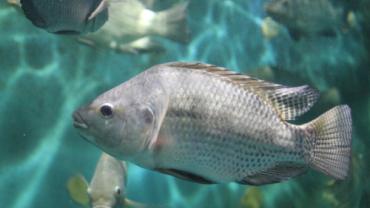
Nutritionists and health advocates have been promoting the consumption of fish and seafood for decades. As the richest and most direct source of anti-inflammatory, brain-boosting omega-3 fatty acids, this food group needed to be embraced as a regular part of the American diet. Omega-3 fatty acids have become a critical tool in our rising battle against chronic diseases, most of which are rooted in systemic inflammation.
Many Americans have been raised to prefer beef and chicken while turning up their noses to fish and seafood. Therefore, in an attempt to introduce the traditional palate to a healthier fare, some health practitioners have not focused on giving clients “best practices” for seafood selection. Hence, these individuals may choose that which is the least expensive, the most widely available, and mild-tasting; namely, farmed tilapia. Tilapia not only remains the top choice of fish for most Americans, but also is highly utilized in the restaurant industry.
While we may try to rationalize the practice of consuming farmed tilapia, by calling it a stepping stone toward healthier options such as salmon, current research is arguing against such reasoning. Previous research from Wake Forest School of Medicine warns us of the dangerously high omega-6 to omega-3 ratios found in farmed tilapia, promoting inflammation and contributing to America’s top cause of mortality – heart disease. In fact, media headlines continue to declare tilapia to be more detrimental than bacon. This claim originates from research that discovered farmed tilapia contained more long-chain omega-6 fatty acids than commercially raised hamburger and bacon, and even doughnuts.
Media reports which have refuted the purported health benefits of tilapia have most likely contributed to the slight decrease in the United States’ demand for farmed tilapia since 2017; however, the US still receives 70 percent of the total international imports of farmed tilapia, primarily from China. Clearly, we are still consuming large amounts of farmed tilapia.
After initial studies of the fatty acid content of farmed tilapia were published, researchers began making proposals to supplement the diet of farmed tilapia with linseed oil, based on controlled studies. But even if supplemental linseed oil improves the omega ratios, are there other health-damaging effects of consuming farmed tilapia?
According to the Monterey Bay Aquarium (MBA) Seafood Watch China report, there are several problems with the United State’s primary source of tilapia. The report admits that “disease-related mortalities are now frequent” in response to high-intensity feeding that includes fishmeal to increase growth rates, and the presence of accumulated waste material which is not well-regulated (nor are the current regulations enforced). Furthermore, there is evidence that banned or illegal chemicals including antibiotics, malachite green (a parasiticide), and methyl testosterone hormones are still used in China fisheries. Many of these chemicals were banned in 2002, but reports indicate a lack of enforced regulation. Despite these concerns, the MBA Seafood Watch still rates farmed tilapia from China as a good alternative to the best choices of seafood.
Imported, farmed tilapia is also likely to contribute to heavy metal toxicities. In a study by the Bulletin of Environmental Contamination and Toxicology, the metal content in the tissues of tilapia raised in fisheries located near industrial parks (especially in south China where natural wind patterns cause contaminants to accumulate) proved to be dangerous to consumer’s health. Results showed significant concentrations of Mn, Ni, Pb, Zn, Cd, Tl, and As which placed the health risk in the 95th percentile of the hazard quotient and excess lifetime cancer risk for consumers.
Fish and seafood is still a superb dietary choice for obtaining healthy omega-3 fatty acids, but as practitioners, we can no longer give vague guidelines for this specific food group. Instead, we must warn consumers of the potential dangers of common choices such as farmed tilapia and instead, direct them to purchase superior selections such as the omega-3 powerhouse, wild salmon.